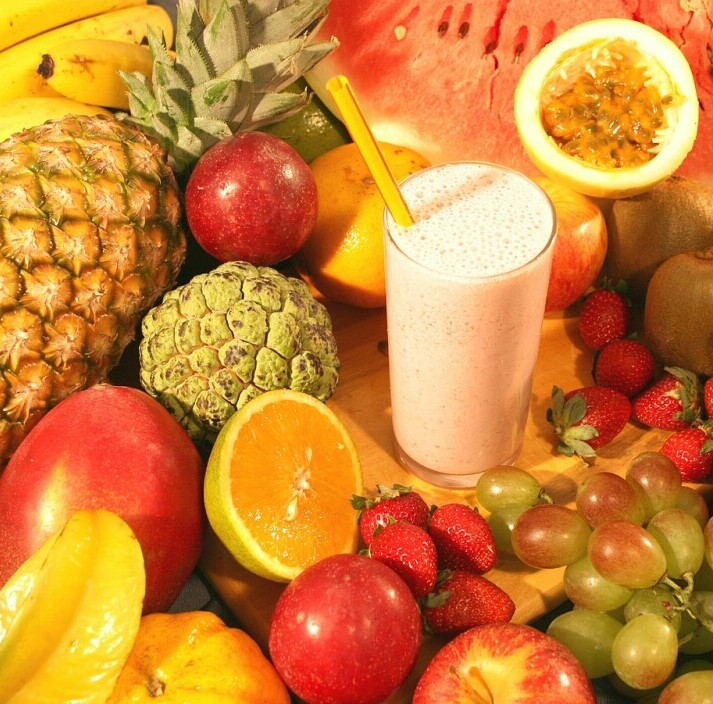(Last Updated on October 9, 2025 by Henry)
I consider my grip every time I turn a doorknob, lift groceries, or shake someone’s hand. It’s an integral part of so many tasks, and yet, it’s easy to take for granted. Whether you’re an athlete looking to improve performance or just want to carry heavy shopping bags with ease, a strong grip is essential. It involves not just the muscles in your hands but also the intricate workings of your forearms and upper body.
You might wonder, how exactly does nutrition influence grip strength?
It turns out that the vitamins and minerals we get from our diet play a crucial role in muscle development & function.
From maintaining bone density to ensuring proper nerve function, these nutrients are fundamental in achieving a firm and enduring grip.
In the upcoming sections, I’ll walk you through the specific vitamins and minerals that are star players in enhancing grip strength.
Keep in mind that while the right diet can lead to significant improvements, it’s not just about what you eat. Lifestyle factors and exercise are also key contributors that I’ll touch on later on.
Which Vitamins Are Essential for Grip Strength?
Imagine your grip as the body’s handshake to the world; it’s often your first physical interaction with objects and tasks. Strong hands aren’t just for athletes or those in physically demanding jobs; they’re essential for everyone. I will explain how certain vitamins act as the foundational elements for building and maintaining a grip that won’t let you down.
Consider Vitamin D, often coined as the ‘sunshine vitamin.’ Surprisingly, it’s as crucial for your muscles as it is for bones. Adequate levels of Vitamin D aid muscle function and, in turn, bolster grip strength. Stepping out in the sun is a reliable way to get your dose, but for those less exposed to sunlight, fortified foods and supplements can top up your reserves. The recommended daily intake for most adults is 600 to 800 IU, though your specific needs might vary.
Then, there’s Vitamin C, a powerhouse for collagen production, which is vital for strong tendons that anchor muscles to bone: a critical component of the complex mechanism operating your grip. You can easily find this vitamin in citrus fruits, bell peppers, and strawberries. It’s not just for warding off colds; the advisable intake of 75 to 90 milligrams per day could be your hand’s new ally in strength.
Let’s not forget the B vitamins, specifically B6 and B12, that serve as the engine for energy in your body. B6 helps with protein metabolism, while B12 is known for repairing cells and creating red blood cells. These vitamins play a supporting role in muscle repair and energy levels, extolling direct benefits on your grip. Meats, fish, and leafy greens are rich in B vitamins, with recommended intakes of 1.3 to 1.7 milligrams for B6 and 2.4 micrograms for B12 daily.
As I transition from vitamins to minerals, it’s clear that just like a team, they work together to create the full picture of health. Each has a unique but interlinked role in fostering a forceful grip. I’ll guide you next through the minerals that act alongside these vitamins to strengthen that all-important grasp.
What Minerals Play the Biggest Role in Grip Power?
When we talk about grip strength, it’s easy to overlook how minerals play a crucial role in our daily handiwork. But they’re power players, and without them, our muscles would be like an engine without spark plugs. Here’s how some key minerals pump power into your grip:
START with magnesium: think of it as the maestro conducting the symphony of muscle contractions and relaxations. This mineral helps manage the dance between muscles tensing up and winding down, which you need for a firm handshake or holding onto that pull-up bar. You can find magnesium in foods like almonds, spinach, and whole grains. For most adults, aiming for around 400 milligrams daily should keep the music playing smoothly.
Next, calcium isn’t just for strong bones; it’s also a star when it comes to muscle contraction. It’s like the switch that tells your muscles when to go into action. Dairy products, fortified plant milks, and kale are loaded with it. Adult intake recommendations vary, with general guidelines suggesting 1000 milligrams per day. Always remember, getting your nutrients from food, where possible, is the gold standard.
Meet zinc, the unsung hero that supports protein synthesis – critical for muscle repair and growth. You’ll hit the jackpot with foods like beef, pumpkin seeds, and chickpeas. Adult zinc needs hover around 11 milligrams per day for men and 8 milligrams for women. An adequate zinc intake helps you bounce back stronger, especially after those grip-intensive workouts.
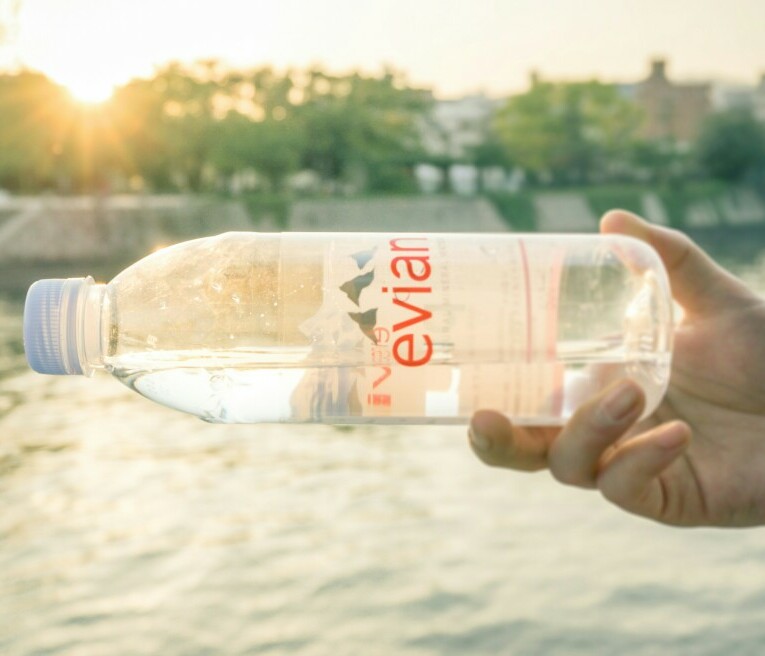
Lastly, there’s iron – vital for transporting oxygen in the blood. Muscle function is dependent on a fresh oxygen supply, and iron is the delivery truck. Lean meats, legumes, and fortified cereals are good bets. Men require about 8 milligrams a day, while women need 18 milligrams due to higher demand during reproductive years.
With this mineral quartet, your grip strength gains a robust foundation. But it’s not just about packing these minerals into your diet randomly; it’s about striking the right balance to maximize their benefits. Up next, we’ll look at how to combine your vitamins and minerals to witness a noticeable difference in your grip strength.
How Can Nutrition Improve Hand and Forearm Strength?
No single nutrient works in isolation. In fact, the various vitamins and minerals in your diet play off each other, creating a network of benefits for your grip strength. It’s the combination of these nutrients that can elevate your grip to its full potential.
For practicality, let’s focus on how you can incorporate these nutrients into your daily routine for optimal grip strength. A diet rich in diverse foods is your ticket to reaping the beneficial synergy. Think about including eggs and salmon to cover your vitamin D needs, citrus fruits and bell peppers for that vitamin C boost, and tossing in spinach and nuts to get the magnesium your muscles crave.

Meal plans tailored for grip strength could include options like oatmeal topped with strawberries for breakfast.
a lunchtime spinach and grilled chicken salad, loaded with seeds and dressed with lemon vinaigrette;
and a dinner featuring baked salmon with quinoa and steamed broccoli.
These are not only delectable; they bring together the vitamins and minerals that directly support a strong grip.
Don’t overlook snacks as an opportunity to fuel up. Almonds, Greek yogurt mixed with fresh berries, or a slice of whole-grain toast with avocado are excellent choices that deliver both taste and targeted nutrients for muscle health.
Remember, consuming these nutrients in the context of a balanced diet is key. Overdoing it on one while neglecting others won’t do the trick. Strive for a well-rounded intake to make the most of the interconnected roles they play in your muscle health.
Should You Use Supplements for Better Grip Strength?
I recognize the critical importance of getting your vitamins and minerals from a healthy, balanced diet. But sometimes, despite your best efforts, you might fall short. This is where supplementation can play a valuable role in maintaining strong grip strength. It’s about making sure you get enough of these essential nutrients to support muscle function.
The question of whether to supplement is worth considering, especially if you’re experiencing signs of deficiencies. Symptoms like persistent fatigue, weakness, or muscle cramps could signal a nutritional gap. You don’t have to guess, though; a blood test can pinpoint your levels of key nutrients. Consult with a healthcare professional to understand your specific needs.
Okay, you’ve concluded that supplements might benefit you. But with so many options, choosing the right ones is paramount. Look for high quality, and check that the dosage aligns with the recommended daily intake. Too much of a good thing can be problematic, so stick to the guidelines.
If you decide to go down the supplement route, remember that timing is key. Some vitamins are fat-soluble, so you’d want to take them with meals to improve absorption. Others might interfere with sleep if taken too late in the day. Consistency matters, too. Establish a routine to ensure you’re reaping the full benefits.
What Lifestyle Habits Boost Grip Performance?
Your diet isn’t the only player in the game when it comes to strengthening your grip. Lifestyle choices complement the hard work you put into your nutritional intake. Consistent hydration is one of these critical facets. Adequate water consumption ensures your muscles remain lubricated, reducing the risk of strains that could compromise grip strength.

Think of it as oiling the engine of your car; without it, functionality declines.
Regular exercise is another pillar of grip fortitude. Incorporating grip-specific exercises such as hand grips, dumbbell holds, and pull-ups can significantly enhance your grip strength.
It’s not just about the hands, though; your forearm and shoulder muscles play a supportive role and should not be neglected in your workout regimen.
Strengthening these muscles collectively can provide stability and power to your grip.
Quality sleep is the unsung hero of muscle recovery. During sleep, your body repairs the microscopic tears in muscle tissue that occur during exercise, leading to strength gains. Neglecting the rest your body demands can put a damper on your progress, leaving muscles fatigued and more prone to injury.
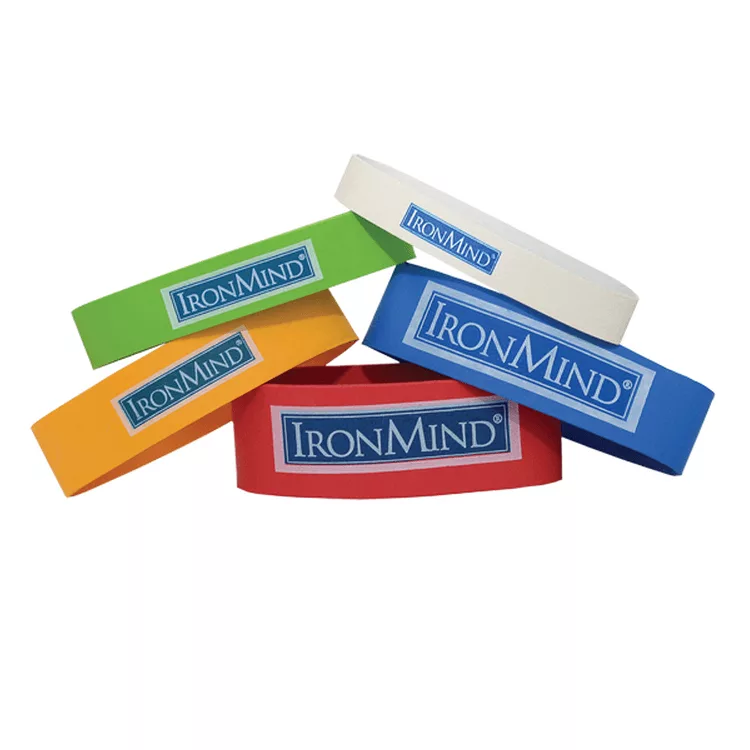
Why are Handbands Staple to Build Hand Muscle Balance?
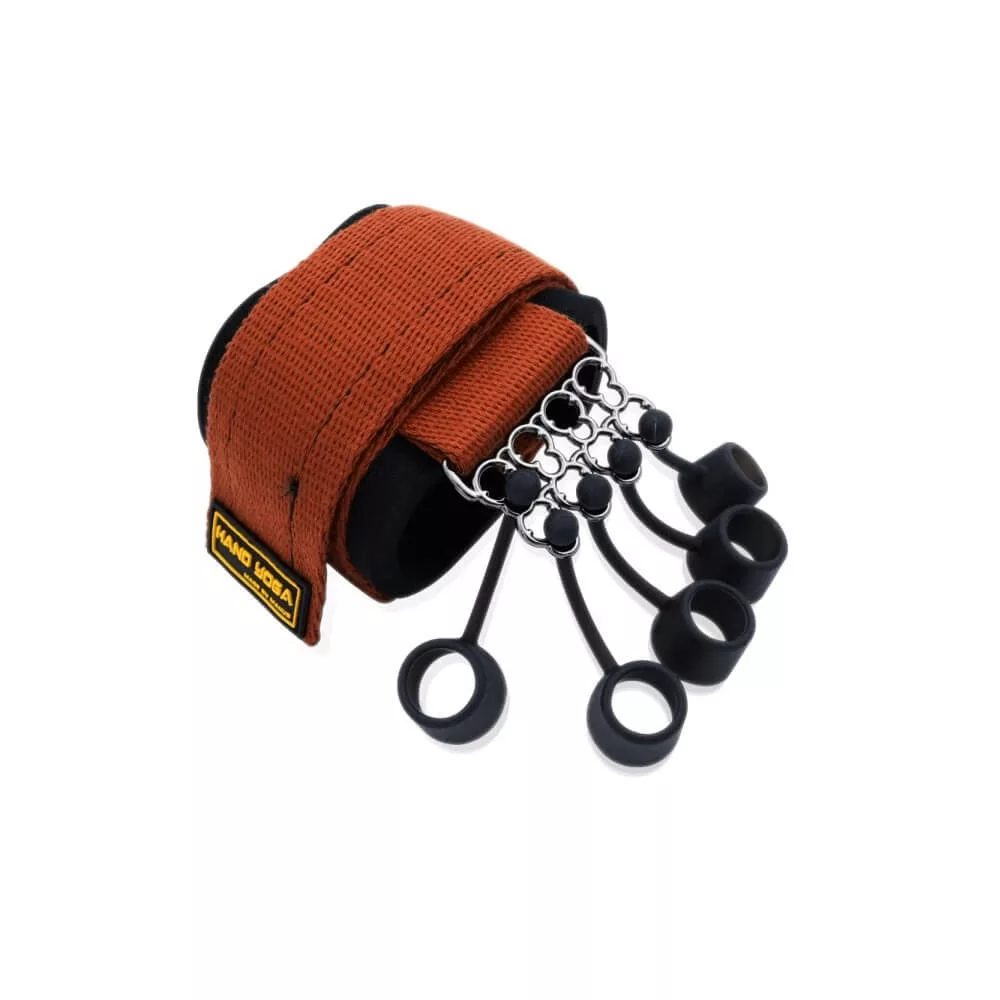
Fancy Finger Exerciser to Build Functional Grip Strength
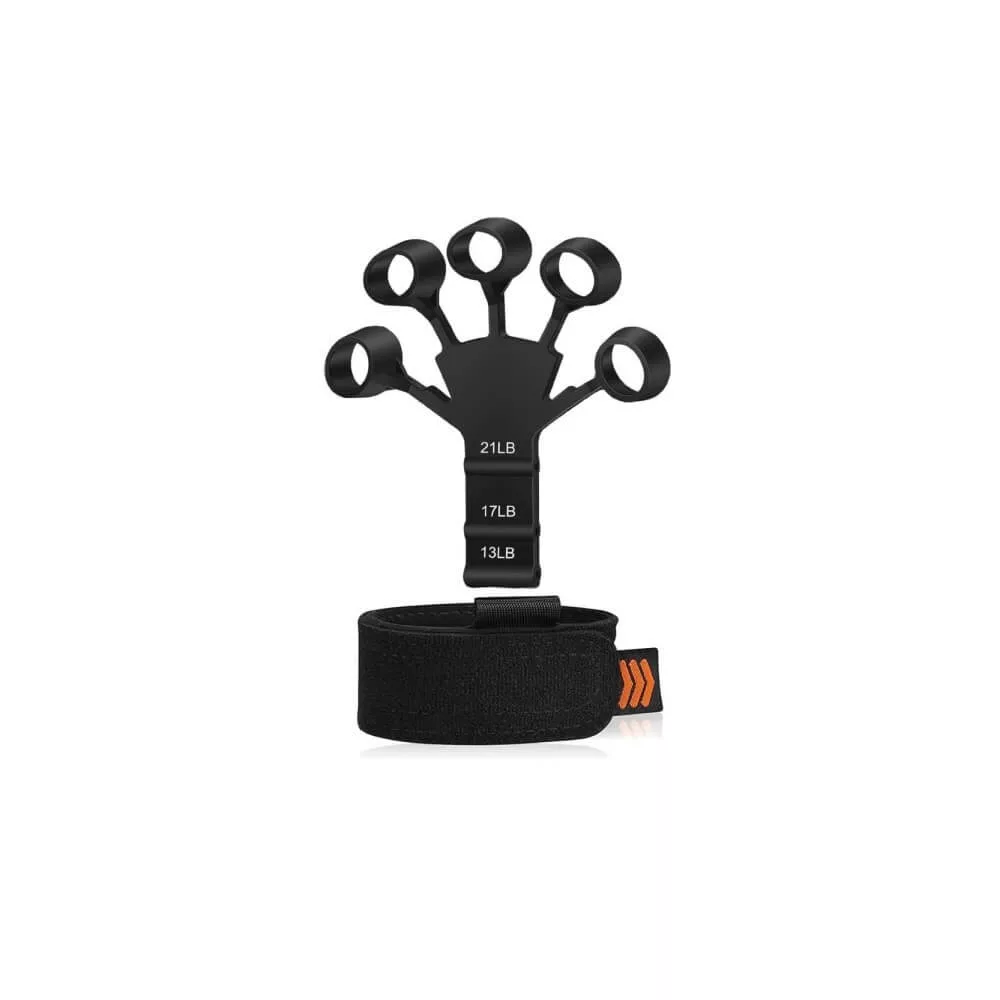
Fun & Affordable Way to Rehab Weak Hands
Adherence to these lifestyle factors could see dramatic improvements in your grip strength, setting a solid foundation for the next topic. Don’t fall prey to the common myths and misconceptions circulating in the fitness world. That’s what we’ll uncover in the next section – separating the helpful facts from the well-intentioned fiction.
What Nutrition Myths Could Hurt Your Grip Training?
Entrenched myths often cloud our understanding of how vitamins and minerals affect our grip strength. It’s common to hear overhyped claims or oversimplified advice that promise quick strength gains. I want to set the record straight, addressing these myths with scientific precision.
One popular misconception is that loading up on protein alone is enough to enhance muscle strength. While protein is undoubtedly important for muscle repair, ignoring the essential vitamins and minerals we’ve discussed means you miss out on the full potential of your grip strength. A varied diet is key.
Some might say that supplementation is unnecessary if you eat right. While a well-rounded diet is the ideal means to obtain nutrients, certain individuals, due to health conditions or dietary restrictions, may require supplements to meet their nutritional needs effectively.
Another myth is the belief that more is better when it comes to vitamins and minerals. However, balance and moderation are essential. Excessive intake of certain nutrients can actually be counterproductive, or even harmful, impacting your grip strength and overall health.
Lastly, there’s the assumption that immediate results should be expected when adjusting your diet for better grip strength. Realistically, improving grip strength through nutritional changes is a gradual process and requires consistent effort over time.
Understanding the role of nutrition in muscle development is complex. It’s not just about taking individual nutrients in isolation. It’s about the synergistic effect of a well-balanced diet and how it supports every aspect of your physical health.
Moving forward, let’s summarize these points and consider how we can apply our knowledge of vitamins and minerals to enhance our grip strength practically and sustainably.
What Is the Best Diet for Maximum Grip Strength?
Reflecting on the information shared, it’s evident that a firm grip extends far beyond the clasp of your hand. It’s a reflection of your overall muscle health and a testament to a well-rounded diet. Ensuring you receive an ample supply of the key vitamins and minerals is crucial for developing and maintaining a strong grip.
Implementing a balanced diet isn’t just about focusing on specific nutrients; it’s about embracing a lifestyle that harmonizes with your health goals. From the hearty morning breakfast packed with Vitamin D and iron to the midday snack rich in Vitamin C and magnesium, each meal is an opportunity to strengthen your grip from the inside out.
I urge you to consider the nutritional advice as a starting point. Tweak and transform these guidelines to fit your individual needs and preferences. This isn’t a one-size-fits-all scenario; dietary choices should adapt to your unique body and lifestyle.
Your journey to a stronger grip is also your journey to overall wellness. While your daily diet is a powerful tool, it’s part of a broader picture that includes regular exercise, adequate hydration, and sufficient rest.
Where Can You Find Expert Advice on Grip Nutrition?
If you’re keen to delve deeper into the entwined relationship between nutrition and grip strength, there’s a wealth of information just a few clicks away. Start by exploring recommended articles and research studies that shed light on the latest findings in the field. For evidence-based guidance, I’d steer you towards reputable sources that provide a scientific foundation for the advice presented.
Should you wish to elevate your knowledge even further, don’t hesitate to reach out to healthcare professionals who specialize in sports nutrition. These experts can tailor advice to your specific needs and help you navigate the complex landscape of vitamins, minerals, and grip strength with precision.
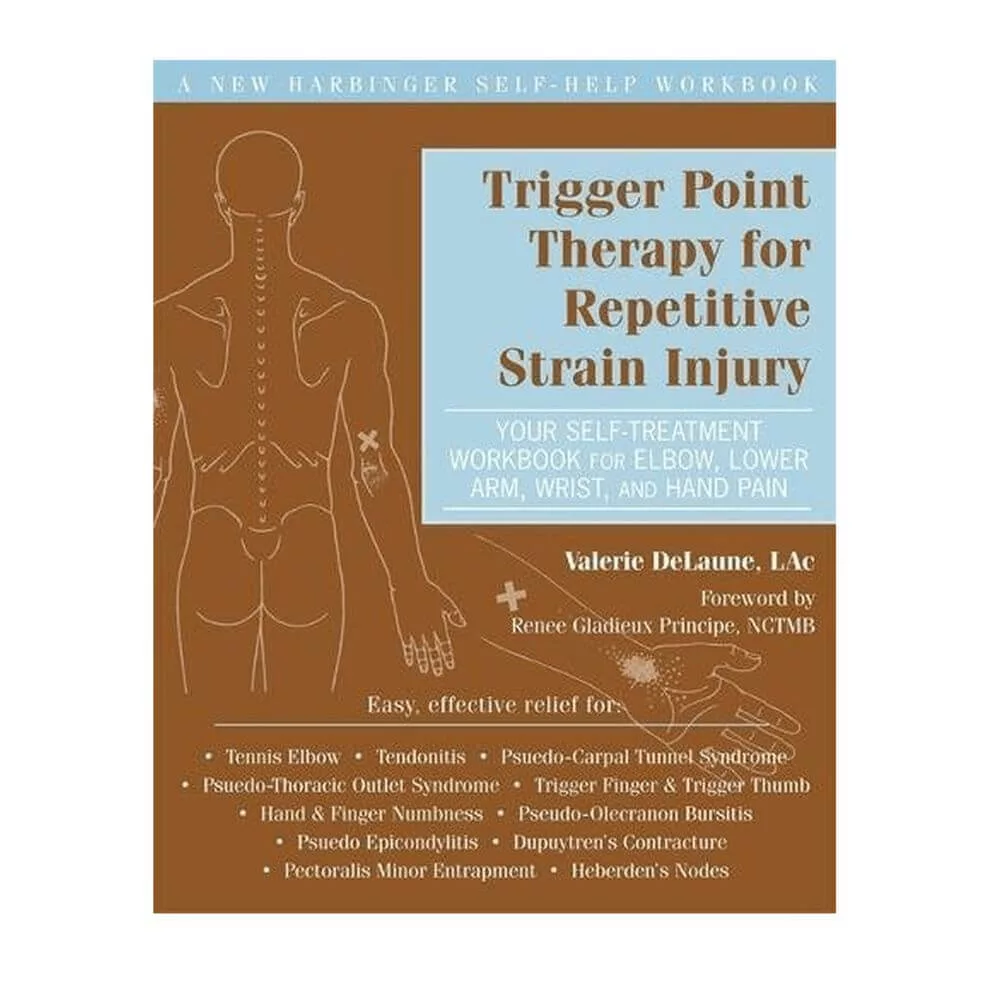
Identify & Manage Repetitive Strain Injury Symptoms Quickly
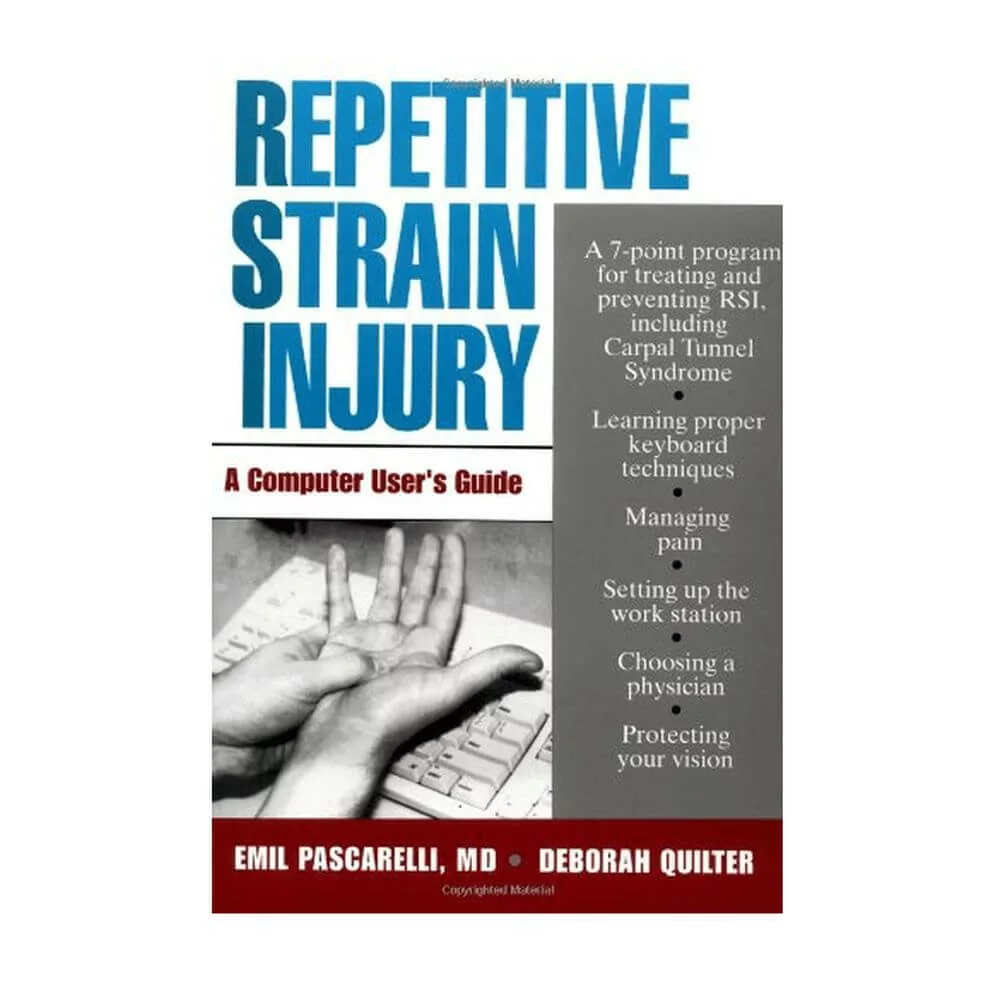
Follow Proven Advice to Overcome Repetitive Strain Injury

Practical Methods to Treat Repetitive Strain Injury Effectively

Relieve Carpal Tunnel Syndrome and Avoid RSI Traps
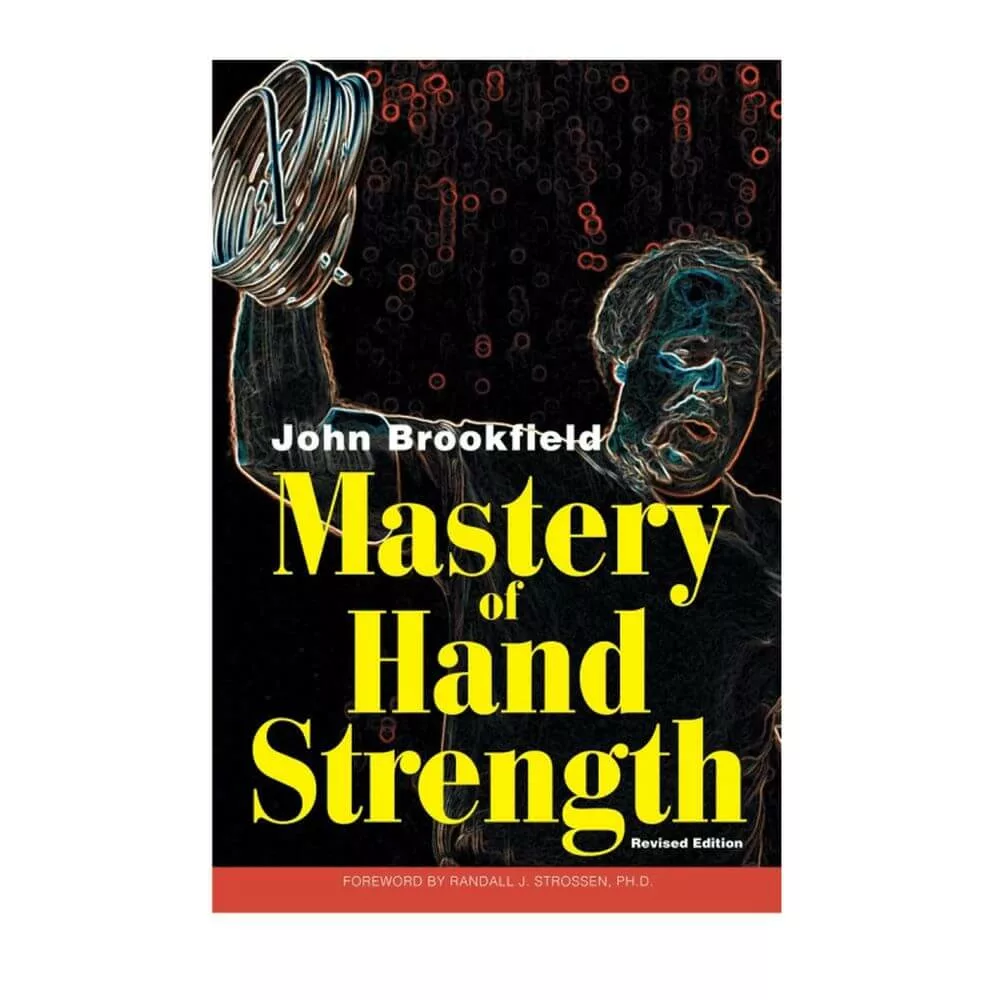
Build a Powerful Grip with Mastery of Hand Strength

Master Your Grip with the Official Captains of Crush Grippers Guide
Remember, knowledge is power, but applying that knowledge consistently is what truly makes the difference. By coupling the insights gained from this article with actionable steps and professional guidance, you can craft a nutrition strategy that supports not just a formidable grip but also reinforces your overall muscle health. It’s not just about squeezing harder; it’s about smart, informed choices that fuel your body for the myriad of tasks it performs daily.
Thanks for Stopping By
Have Questions?
Please Leave A Comment

